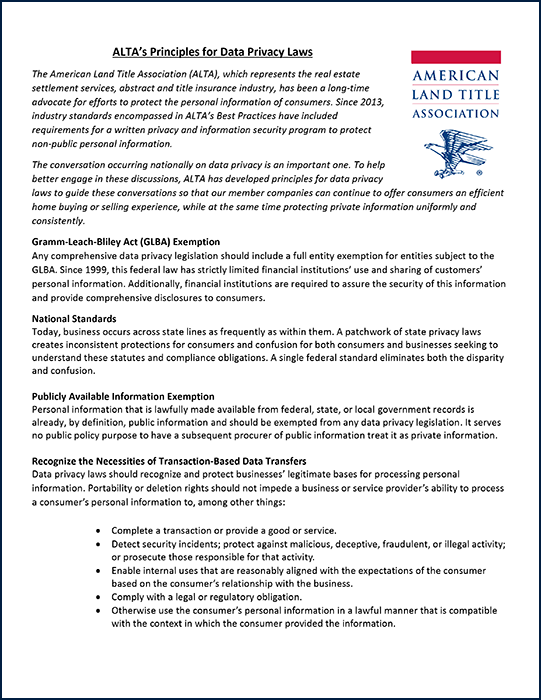Background
With states passing inconsistent laws and no uniform federal law addressing data privacy, there’s a patchwork of rules for companies to comply with. ALTA is dedicated to helping its members understand what they need to do to comply, if required, with data privacy laws.
ALTA Policy Position
ALTA believes any comprehensive data privacy legislation should include a full entity exemption for entities subject to the Gramm-Leach-Bliley Act (GLBA). Since 1999, this federal law has strictly limited financial institutions’ use and sharing of customers’ personal information. Additionally, financial institutions are required to assure the security of this information and provide comprehensive disclosures to consumers.
Data Privacy Principles
GLBA Protects Consumers' Privacy Rights
Resources
- ALTA-PRIA FAQs & Best Practices for Public Record Privacy Protections
- ALTA-PRIA Best Practices for Public Record Privacy Protections
- Basics of Privacy Rights
- Data Mapping
- Compliance Steps for US Privacy and Cyber Laws and Regs
- Suggested Privacy and Cyber Compliance Resources
- Data Privacy Implications for Service Provider & Third-Party Contracts
Webinars
Preparing for the California Consumer Privacy Act
- (Download PDF of presentation)
Compliance Webinar: Understanding Consumer Privacy Rights and Redaction Trends
- (Download PowerPoint Presentation)
Podcasts
ALTA Podcasts with Carlton Fields
State Data Privacy Laws
Click on any enacted state for links. Click "x" to close.
